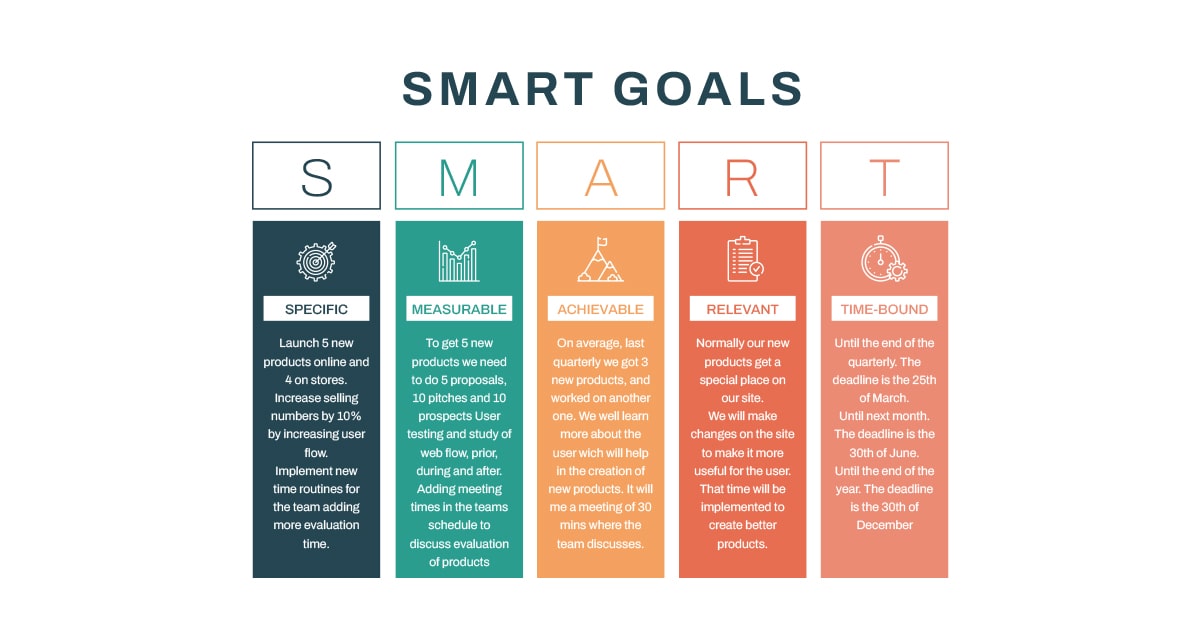Staying on top of social media trends can be daunting, no matter how experienced you are with using platforms like Twitter,Instagram, and Facebook. Fortunately, understanding the basics of social media management is essential to navigating these channels and creating a successful presence. In this post, we'll take an in-depth look at everything you need to know about managing your social media accounts.
Blog Contents
What is Social Media Management?
Set SMART Goals for Your Social Campaigns.
Determine the Platforms to Manage.
Create Engaging Content and Post Regularly.
What is Social Media Management?
Social media management is the process of using various tools and platforms to identify, target, and engage with your target audience. It includes planning and executing content strategies, responding to followers' comments, tracking analytics, monitoring competitors’ activity, managing paid social media campaign, and more. In order for a social media strategy to succeed, it needs to be organized and methodical in order to maximize its potential.
The first step in social media management is setting up goals and objectives, as this will help you determine what activities you need to prioritize. Depending on your goals, some steps may include researching your target audience, creating content ideas, managing a social media content calendar, developing visuals for posts, optimizing for SEO and more. Additionally, responding quickly and effectively to user comments and questions will help to build trust with your audience, showcase your business’s customer service skills, and provide an opportunity to share valuable insights from your brand’s community. Lastly, tracking metrics such as followers' engagement levels will enable you to measure the success of your strategies. With these strategies in place and through consistent effort applied over time, you’ll be able to establish a strong presence on social media platforms that will draw in visitors and customers.

Set SMART Goals for Your Social Campaigns
SMART goals are specific, measurable, achievable, relevant, and time-bound objectives. They are an essential part of any effective social media management strategy and help to ensure your campaigns stay on track and are as successful as possible. For example, some SMART goals could include increasing sales by 10% through social media over the next 3 months or growing the number of followers on a page by 20% in 2 weeks. Setting clear goals can help ensure you’re working towards achieving measurable results with your social media strategy.
To help you get started on setting SMART goals for your next social media campaign, write out each goal and break it down into manageable tasks. By being specific and tracking progress, you'll be able to better determine your success and identify areas where you could make changes or improvements. Additionally, don't forget to factor in other elements that could affect your goals such as budget, resources, staff availability, etc. With the right planning and a clear understanding of what success looks like, you'll be able to create an impressive and effective social media management strategy.

Determine the Platforms to Manage
Depending on the industry your business is in and the goals you’ve set, there are many platforms that can help you to reach your target audience. Different social media networks offer different user bases and targeting capabilities, so it’s important to decide which ones you want to use when managing your social media accounts. For example, LinkedIn may be better for businesses seeking professional connections whereas Facebook could be more appropriate for broader consumer targeting. Consider all of these factors as you select the best platforms for your company’s objectives.
Additionally, social media networks will require specific strategies depending on their user base. For example, a Facebook post may require a different approach than a tweet on Twitter. A sound social media management strategy should include a mix of both organic and paid components designed to engage your audience and drive overall visibility for your brand. Careful research into the trends and preferences of your target market is also key when determining how best to manage your social media platforms. Utilizing social media analytics tools, you can track your company’s performance across multiple channels to identify areas that need improvement or further exploration. Social media management is an ongoing process requiring continual review and optimization over time to ensure it's producing the desired results.

Create Engaging Content and Post Regularly
When done strategically, regularly sharing posts on social media can help to establish trust, build relationships, and eventually create conversions. Posting branded content that shows off your business or relevant industry news is a great way to stay top-of-mind for users. Leverage visuals like images, videos and GIFs as often as possible — studies show that colorful visuals increase engagement by up to 75%. Make sure to test different types of messages and tones to find out which resonates best with your audience.
To get the most out of your content, post frequently. The number of posts and how often will vary depending on the social media platform you are using, but it is generally recommended to post about 2–4 times a day for Twitter and 5–10 posts per week for Facebook. Also note that the time of day reigns king when posting on social media; sharing your content during peak engagement hours ensures more users will be exposed to your message. Experiment with different days and times to see what works best for your audience — you may even find that differently timed posts work better on certain platforms compared to others.

Use Automation to Streamline Processes
Social media automation tools can save time and energy for businesses managing multiple accounts on different platforms. Automating social media content scheduler helps ensure that your posts go out at the most impactful times to reach the biggest audience possible. Additionally, automating certain tasks like replying to comments and messages saves time and resources as well. Make sure you're careful with automation by always proofreading before scheduling or sending so you don’t post any errors.
Automating your social media content also allows you to easily track and monitor your performance. Social media automation tools provide helpful data and analytics that can improve the success of your campaigns. You get access to details like the reach, impressions, and engagement rate of each post; how many followers you’ve gained (or lost); who is sharing your content; when most people are consuming it; and many more details. All these metrics help make for smarter decisions about future social media posts. With automation taking over some of the tedious tasks associated with managing a multitude of accounts across various platforms, businesses can save time for other activities without sacrificing quality or ensuring their posts go out in a timely manner.

Conclusion:
To succeed in social media management, it's important to have a clear strategy in place. You should identify your goals, target audience, and the social media platforms that are most relevant to your business. You should also develop a content plan that aligns with your brand messaging and resonates with your audience.
Consistency is key when it comes to social media management. You should post regularly and engage with your followers to build a strong relationship with them. It's also important to track your progress and adjust your strategy accordingly to optimize your results.
By using the right tools and techniques, businesses of all sizes can leverage the power of social media to achieve their marketing goals. Whether you're looking to increase brand awareness or generate leads, social media management can help you get there.




